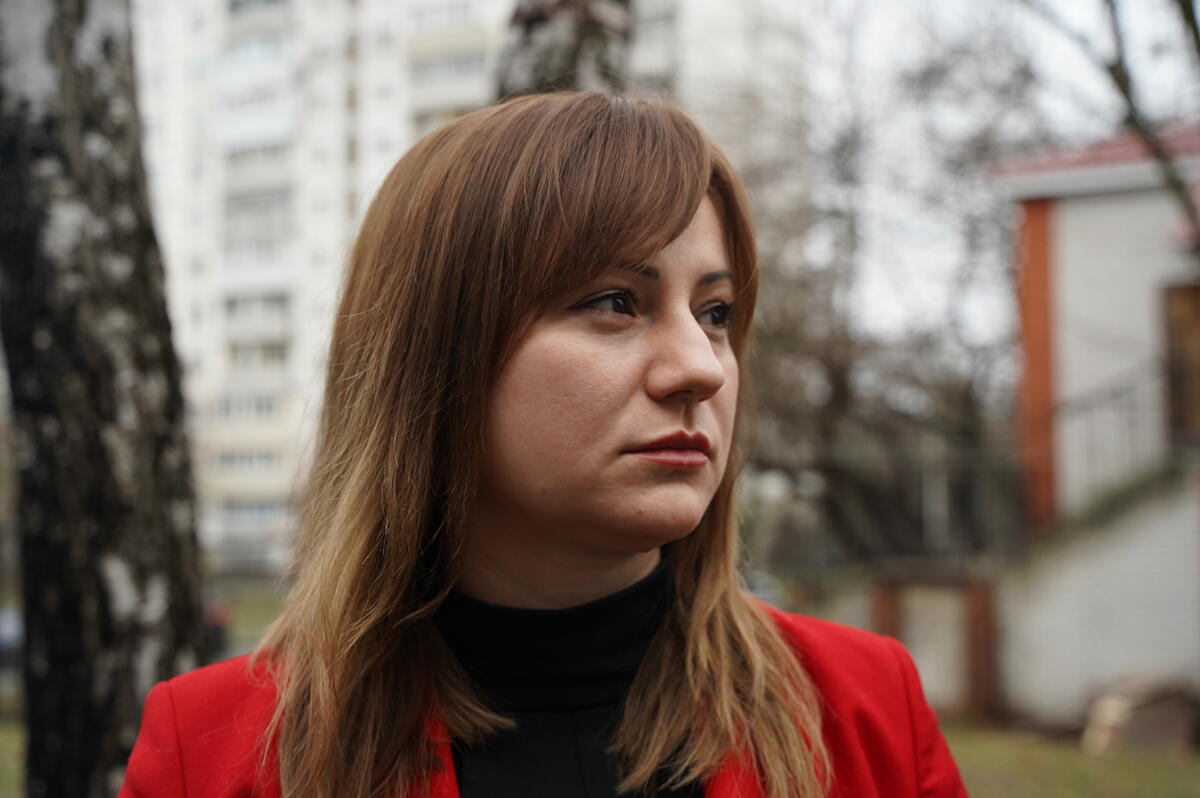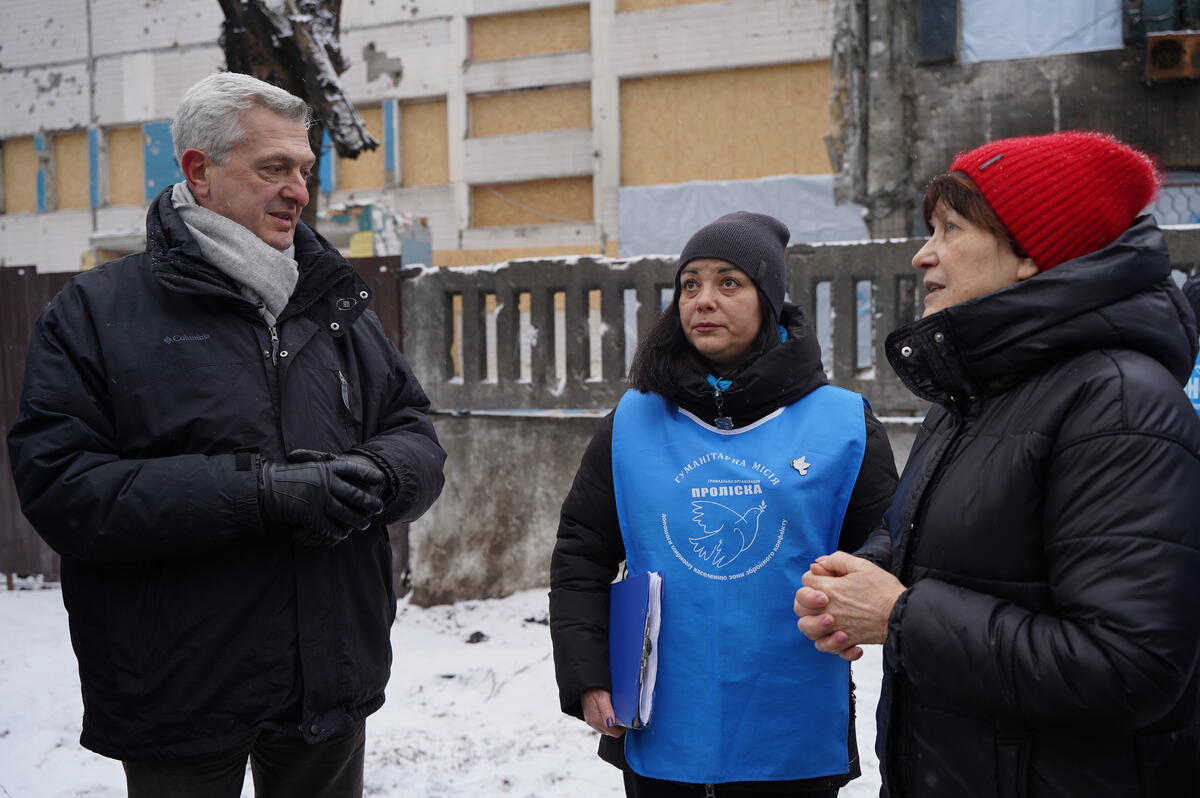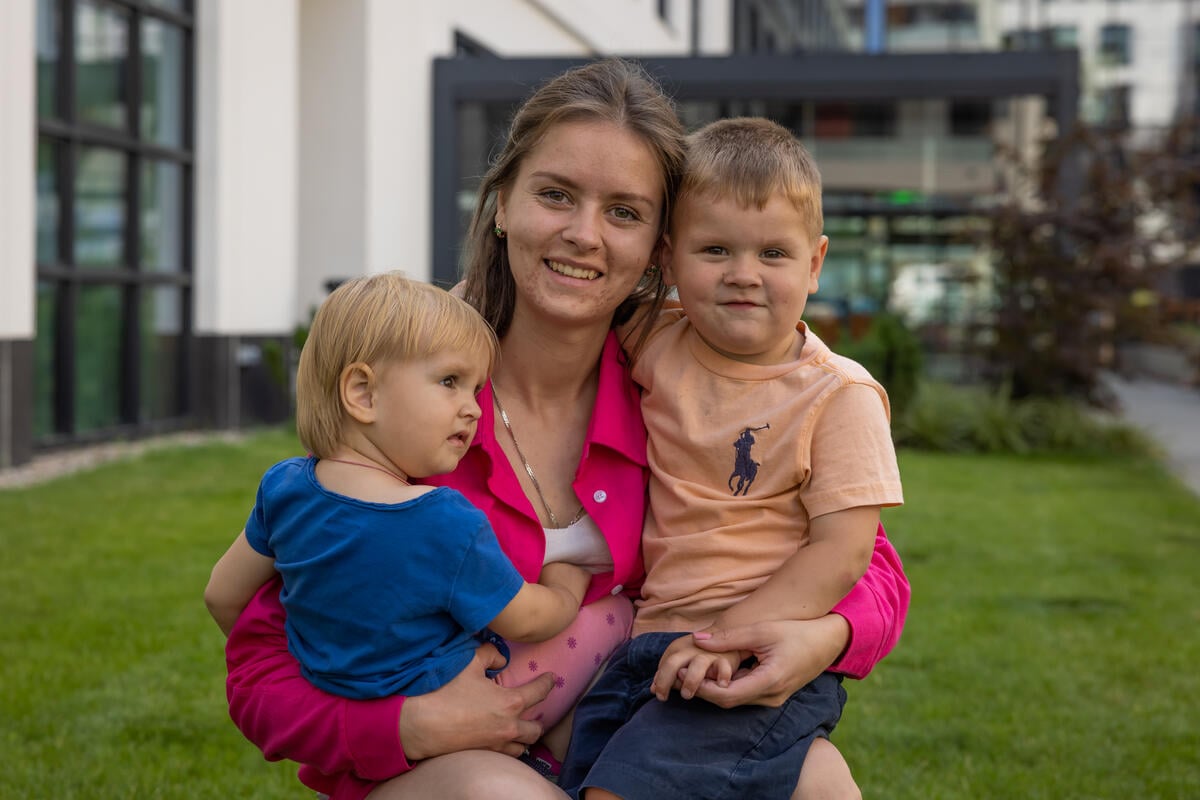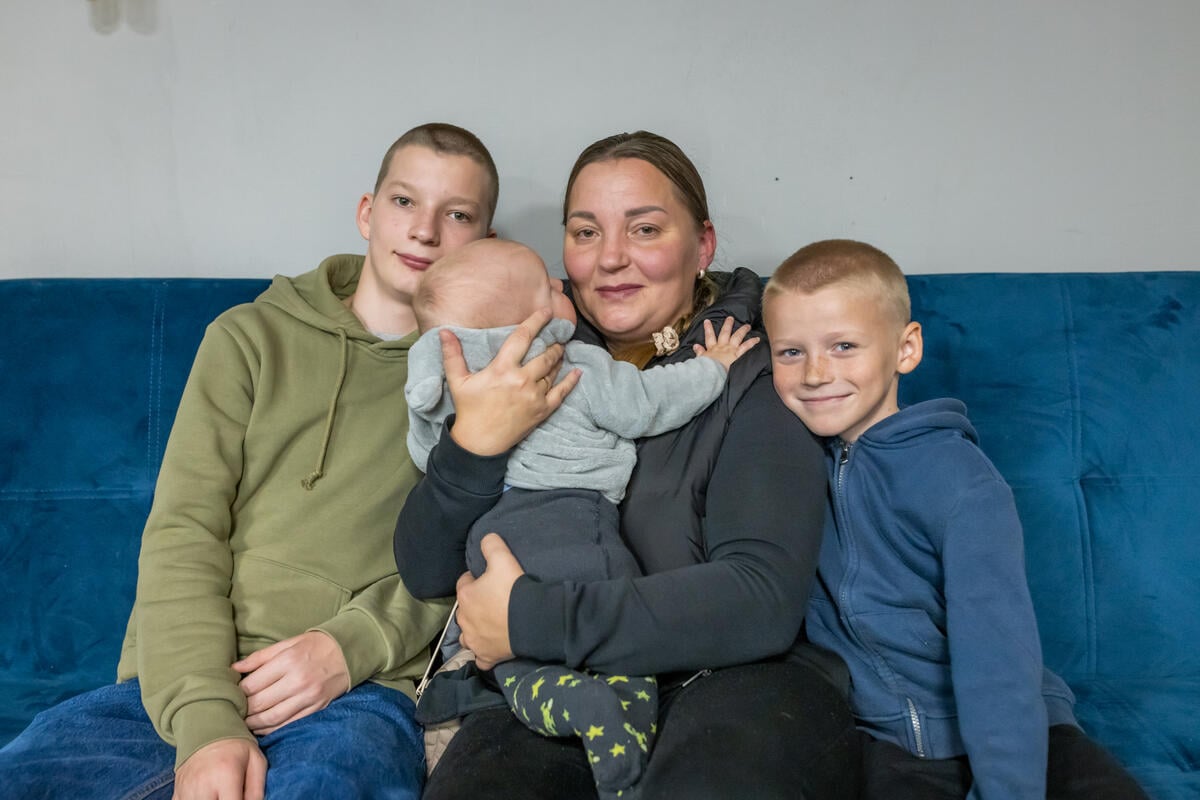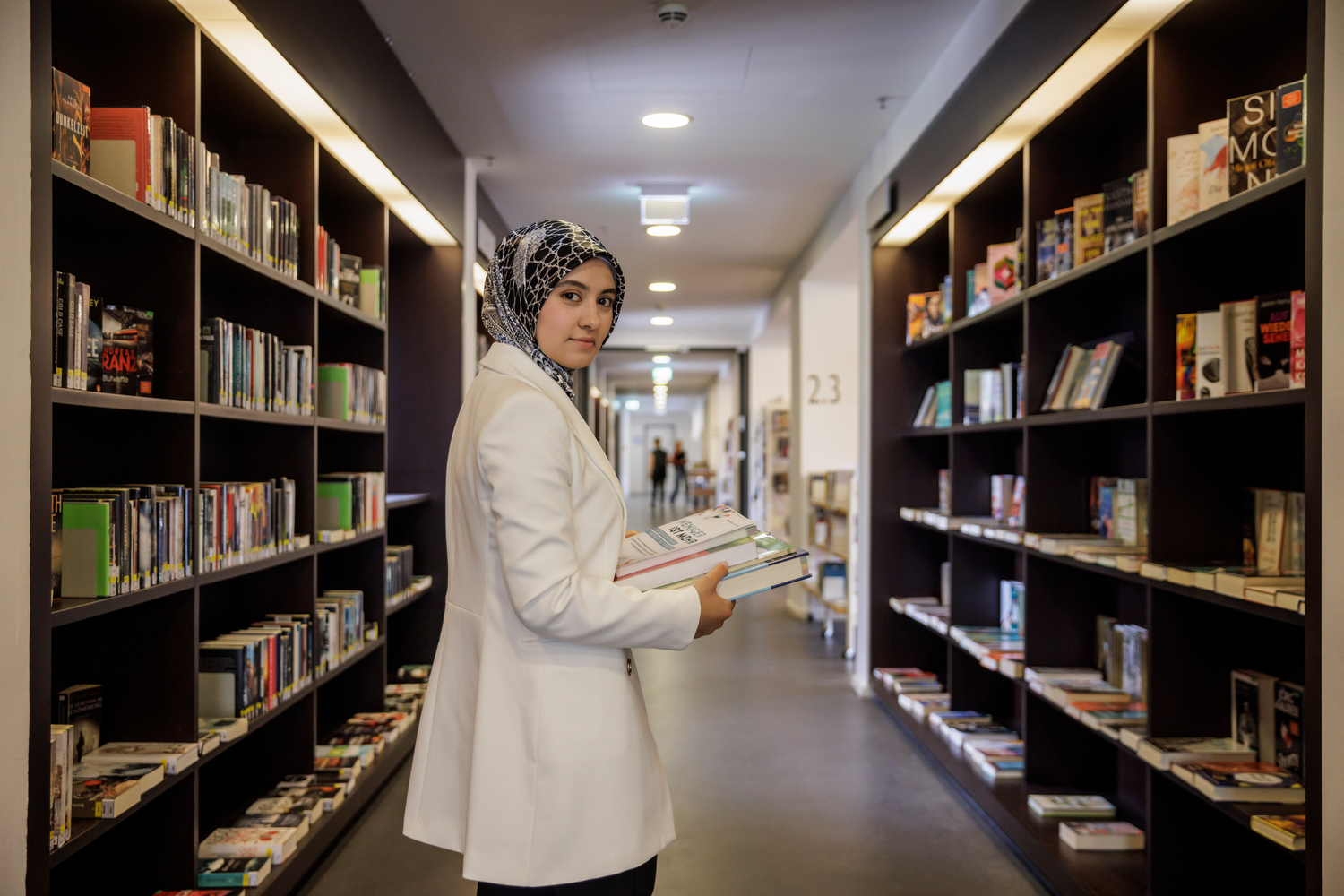A warm welcome for displaced Ukrainians in Russia's Rostov region
A warm welcome for displaced Ukrainians in Russia's Rostov region
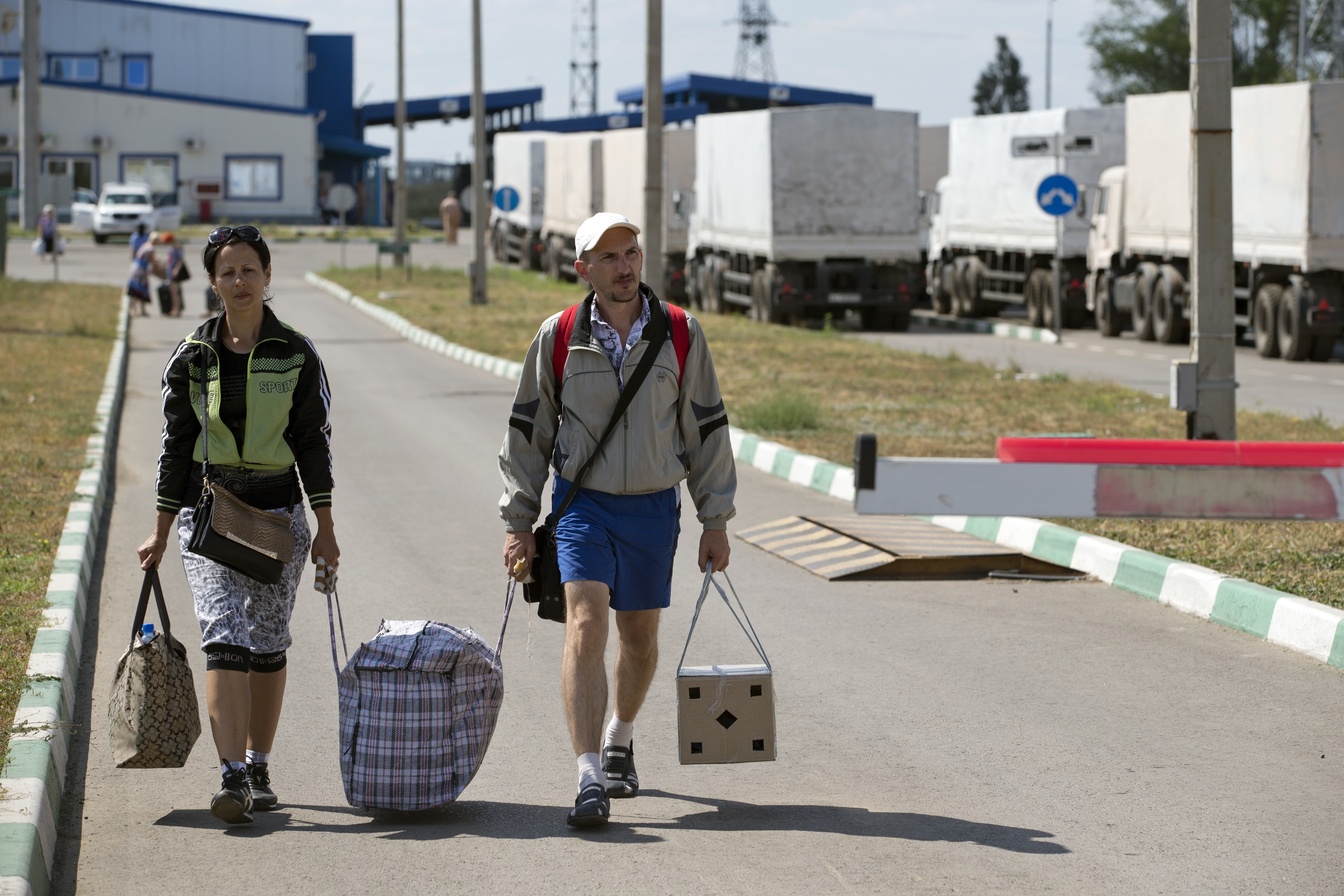
KRASNY DESANT, Russian Federation, October 31 (UNHCR) - Lidia resents the presence of camera crews outside her house, saying she only did what anyone else would have done in her position, and the figures bear her out.
The widow, like hundreds of other people living in and around the Russian city of Rostov, took in families displaced by the fighting in eastern Ukraine, which is still simmering despite a ceasefire and autonomy pledge in September. Lidia opened her home in Krasny Desant to eight people from two families.
According to government estimates, some 60,000 people from Ukraine were sheltering in the Rostov region.in mid-July, but the number has fallen to about 43,000 as some people returned home or moved elsewhere in the Russian Federation. About 95 per cent are staying with friends, relatives or generous families.
The government reports a similar pattern in other host areas in Russia, with only a small percentage living in public buildings or temporary accommodation facilities. Some lived in tents, but the government has moved them to sturdier accommodation ahead of the winter. Those staying in Russia, worry about the volatile situation back in Ukraine.
Lidia never hesitated when displaced families started arriving in the Rostov region. "I did the least a human being would do in this situation," stressed Lidia, a woman in her 60s whose children long ago left the nest. She lives on her own in a big village house and, like many of her neighbours, makes wine from grapes she grows.
She was able to offer room to the families, and they in turn helped her in the vineyard, the kitchen and about the house. Lidia also welcomed their company in a house that had become quite quiet since her children moved out - there were four noisy teenagers among her guests.
Lidia received a small amount of money from the government to compensate for helping the families, but acted above all out of a sense of solidarity and humanitarianism. As UNHCR Representative to the Russian Federation Bayisa Wak-Woya noted, "Samaritans are most needed at times of social crisis."
The two families staying with Lidia plan to move on soon to start a new life in Russia's Far East, but the Ukrainians staying here want to see what happens back home and are preparing for the cold winter. The regional authorities have closed several tented camps and are moving those not living with host families to more solid and better protected accommodation, including holiday homes, health resorts and recreation centres in the Rostov region.
All the Ukrainians, those staying in private accommodation and those in facilities provided by the government, are grateful for the help and warm welcome they have received. In the temporary accommodation centres, this included three meals a day, clean linen, medical services and a free supply of sanitary items.
Humanitarian assistance has been provided by the Russian Red Cross Society while locals have also given relief items, including blankets, medicine, clothing, kitchen utensils, nappies, toys, food and more. NGO volunteers from Rostov and other regions have helped collect and deliver aid, put the displaced in touch with landlords, organize activities for children and provide counselling for those suffering from trauma and loss.
Lidia, meanwhile, is preparing for life on her own once the two families leave. She will miss them, but people are still fleeing their homes in eastern Ukraine and she might one day open her house to other displaced families.
By Galina Negrustueva in Krasny Desant, Russian Federation


